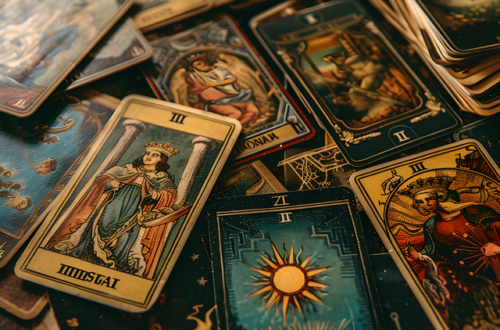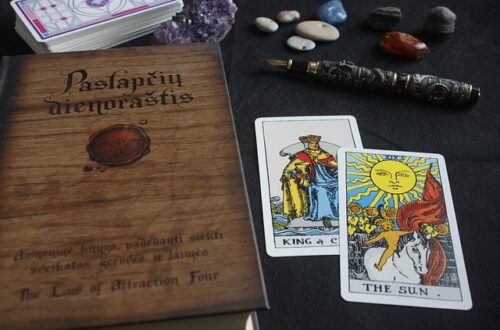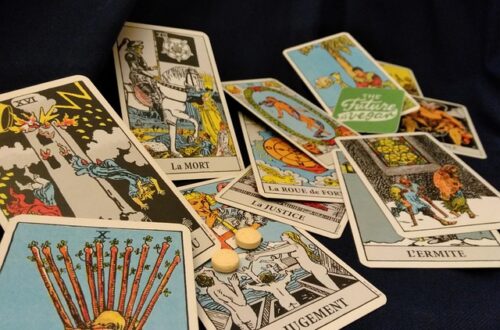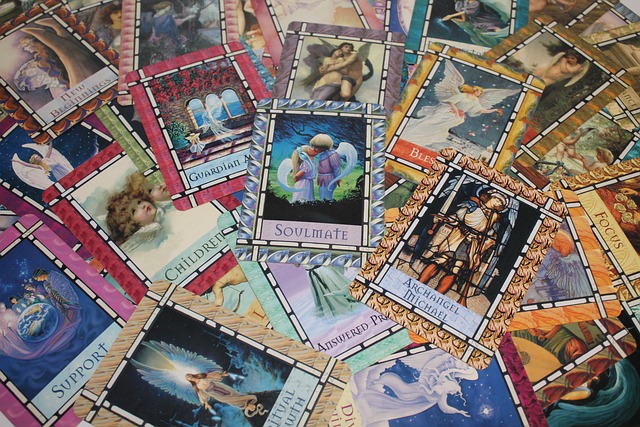
How to ask the right questions in a Tarot Reading?
Table of Contents
How to Ask the Right Questions in a Tarot Reading
Tarot reading is a profound practice that allows individuals to seek insight into their lives, relationships, and futures. However, the effectiveness of a tarot reading heavily depends on the questions asked. In this article, we will explore how to formulate the right questions to get the most meaningful responses from your tarot readings. By understanding the nuances of inquiry in this mystical practice, you can enhance your reading experience and deepen your connection with the cards.
Read: https://magical-rituals.com/blog/2024/06/16/tarot-and-meditation-deepening-your-spiritual-practice/
Understanding the Importance of Questions
Asking the right questions is crucial in a tarot reading. **Questions shape the direction of the reading**. They can either open pathways to insight or lead to confusion and ambiguity. When you ask vague or poorly constructed questions, the answers you receive may not be helpful. Thus, it is essential to approach your tarot reading with clear intentions and precise inquiries.
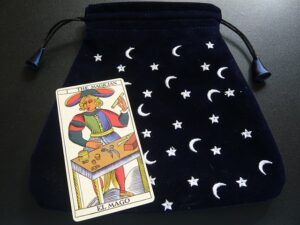
Types of Questions
In tarot, questions can be categorized into three primary types: open-ended, closed, and focused. Each type serves a different purpose and yields different insights.
Open-Ended Questions
Open-ended questions invite expansive answers and promote deep exploration. They typically begin with words like “how,” “what,” or “why.” For instance, instead of asking, “Will I find a job?”, consider rephrasing to, “What steps can I take to enhance my career prospects?” This approach allows the cards to provide more comprehensive guidance, encouraging self-reflection and insight.
Closed Questions
Closed questions usually lead to simple yes or no answers. While they can be useful for obtaining clear, concise information, relying solely on them may limit your understanding. An example of a closed question is, “Will I be successful in my new project?” Such questions can be restructured for depth. Instead, you could ask, “What factors will influence my success in this new project?” This way, the tarot can offer a broader perspective on the situation.
Focused Questions
Focused questions delve into specific aspects of a situation or concern. They help clarify the context and guide the reading. For example, asking, “What challenges should I anticipate in my relationship?” directs the cards to address particular dynamics rather than providing general relationship advice. This targeted approach fosters clarity and relevance in the reading.
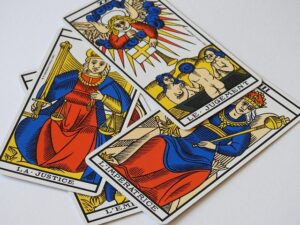
Crafting Effective Questions
When formulating questions for your tarot reading, consider the following strategies to ensure they are effective and impactful:
Be Specific
Specificity is key in tarot inquiries. The more precise your question, the more focused the answer will be. Instead of asking broad questions like, “What does my future hold?”, try narrowing it down to something like, “What should I be aware of regarding my finances in the next six months?” This specificity directs the reading and helps you gain actionable insights.
Use Positive Language
The wording of your questions significantly impacts the energy of the reading. **Positive language** encourages constructive guidance and insight. For example, instead of asking, “Why am I failing in my career?”, consider rephrasing it to, “What can I do to improve my career satisfaction?” This positive framing shifts the focus from problems to solutions, enhancing the quality of the reading.
Focus on Yourself
Questions that center on personal growth and responsibility yield the most valuable insights. Instead of asking, “What will happen to my partner?”, reframe it to, “How can I support my partner during challenging times?” This approach encourages self-reflection and empowers you to take action based on the reading’s insights.
Stay Open to Interpretation
Approach your tarot reading with an open mind. **Be prepared to interpret the answers in various ways**. Sometimes, the cards may not provide the response you expect, but they can offer insights that are equally valuable. Maintain flexibility and openness to the messages the cards convey, allowing for a more profound understanding of your situation.
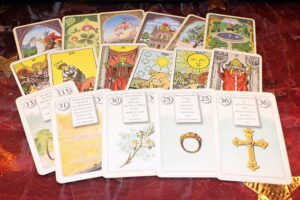
Preparing for the Reading
Preparation plays a vital role in the effectiveness of a tarot reading. Taking time to prepare mentally and emotionally can enhance your experience and the quality of your inquiries.
Set Your Intentions
Before starting your reading, take a moment to set your intentions. Reflect on what you hope to gain from the session. Consider journaling your thoughts or meditating briefly to clear your mind. This practice helps focus your energy and align your questions with your goals, creating a more meaningful connection with the cards.
Connect with the Deck
Spend time connecting with your tarot deck before the reading. This connection can be achieved through simple rituals, such as shuffling the cards, meditating on them, or even sleeping with them under your pillow. This bond enhances the reading experience and allows the cards to resonate more deeply with your energy.
During the Reading
As the reading unfolds, be mindful of your approach and how you interact with the tarot. **Active engagement** can lead to more profound insights and a richer experience.
Listen Actively
When the cards are drawn and interpreted, practice active listening. Focus on the messages conveyed through the cards, and take note of your feelings and thoughts that arise. This attentiveness can reveal hidden meanings and insights that might not be immediately apparent, leading to a more comprehensive understanding of your situation.
Ask Follow-Up Questions
If a particular card or interpretation resonates deeply with you, don’t hesitate to ask follow-up questions. This inquiry can help clarify the message and uncover deeper layers of meaning. For example, if a card suggests a challenge, you might ask, “What strengths do I possess that will help me navigate this challenge?” This approach fosters deeper exploration and understanding.
Post-Reading Reflection
After completing your tarot reading, reflection is essential. Taking time to process the insights gained can help solidify the experience and integrate the messages into your life.
Journal Your Insights
Consider keeping a tarot journal where you can record your questions, the cards drawn, and the insights received. Writing down your thoughts can help clarify your understanding and allow you to revisit the reading later. Over time, this practice can reveal patterns and themes in your life, enhancing your growth and self-awareness.
Take Action
Finally, consider how you can apply the insights gained from your tarot reading to your life. What actionable steps can you take based on the guidance received? Taking action empowers you to manifest the changes you desire and fosters a sense of agency in your journey.
Conclusion
In summary, asking the right questions in a tarot reading is fundamental to unlocking the cards’ potential. By crafting specific, positive, and self-focused inquiries, you enhance the quality of your readings and gain deeper insights into your life. Remember to prepare mentally, engage actively during the reading, and reflect on the messages afterward. Through this process, tarot can become a powerful tool for self-discovery, growth, and empowerment.
Bibliography
- Pollack, Rachel. 78 Degrees of Wisdom: A Tarot Journey to Self-Awareness. Weiser Books, 2018. ISBN: 978-1578636912.
- Benebell Wen. The Tao of Tarot. North Atlantic Books, 2016. ISBN: 978-1623170540.
- Jodorowsky, Alejandro, and Marianne Costa. The Way of Tarot: The Spiritual Teacher in the Cards. Jeremy P. Tarcher, 2009. ISBN: 978-1585426588.
- Greer, Mary K. The Complete Book of Tarot Reversals. Llewellyn Publications, 2002. ISBN: 978-0738700863.
- Sharman-Burke, Julia, and Liz Greene. The Mythic Tarot. U.S. Games Systems, 1986. ISBN: 978-0913866866.


